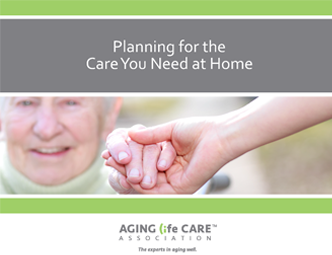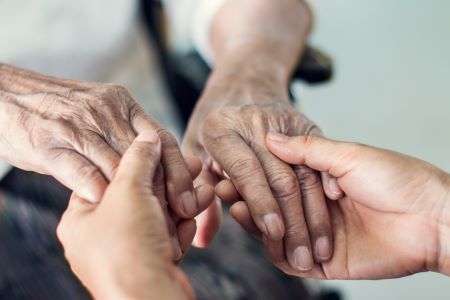Aging in place offers seniors the comfort and familiarity of their own homes, but it comes with its own set of challenges.
Addressing functional issues within the home environment is crucial to supporting seniors’ desires to live independently while ensuring their safety and well-being. In this blog post, we’ll explore common functional issues that can lead to moving to a care facility, offer practical solutions, and explain how an Aging Life Care Managers® can assist in creating a safer and more supportive home environment.
Aging Life Care Managers are dedicated to helping seniors age in place by providing personalized assessments, care plans and access to resources that promote independence and well-being.
Statistics Highlighting the Importance of Aging in Place
A significant number of older Americans prefer to remain in their homes as they age. According to a 2023 AARP survey, 77% of adults aged 50 and older want to stay in their current homes and communities as they age (AARP, 2023). However, functional issues can pose serious risks. For instance, falls are a major concern, with about one in four older adults experiencing a fall each year (CDC, 2023). Additionally, 68% of older adults report needing assistance with daily activities such as bathing and dressing, which underscores the need for appropriate home modifications and support (NIA, 2023).

The Need for Personalized Assessment and Planning
To effectively support aging in place, a personalized assessment and care plan are essential. An Aging Life Care Professional® provides invaluable assistance by conducting a thorough evaluation of the home environment to identify specific risks and needs. This personalized assessment helps in developing customized care plans and recommending the most appropriate home modifications and safety equipment. By coordinating various services, from home health care to community resources, these professionals ensure a holistic approach to care. Their ongoing support involves continuous monitoring and adjustments to care plans as needs evolve. The Aging Life Care Association® highlights the critical role of these professionals in managing the complex needs of aging individuals and ensuring a safe, comfortable living environment.
 Free E-Book Planning for the Care You Need at Home
Free E-Book Planning for the Care You Need at Home
Common Functional Issues and Solutions
1. Risk of Falls
Issue: Falls are a leading cause of injury among older adults, with about one in four older adults falling each year (CDC, 2023). Factors contributing to falls include uneven flooring, poor lighting, and mobility limitations.
Solution: Implementing safety modifications such as installing grab bars, removing tripping hazards, and improving lighting can significantly reduce fall risks. Additionally, using non-slip mats and securing loose rugs can help create a safer environment. The Centers for Disease Control and Prevention (CDC) emphasizes that these changes are essential in preventing falls and related injuries (CDC, 2023).
2. Need for Assistance with Personal Care
Issue: As seniors age, they may require assistance with personal care tasks such as bathing, dressing, and toileting. Difficulty performing these tasks can lead to safety risks and a diminished quality of life.
Solution: Installing grab bars in the bathroom, using shower chairs, and ensuring that essential items are within easy reach can help. In-home care services can also provide personal assistance, including help with daily activities and hygiene. According to the National Institute on Aging, modifying the home and accessing professional help can greatly improve safety and comfort (NIA, 2023).
3. Cognitive Decline
Issue: Cognitive impairments, including dementia, can impact a senior’s ability to manage daily tasks, remember medications, and respond to emergencies.
Solution: Implementing memory aids, medication management systems, and emergency response systems can provide support. According to the Alzheimer’s Association, creating a supportive and structured environment tailored to cognitive needs is crucial (Alzheimer’s Association, 2023).

4. Inadequate Home Design
Issue: Many homes are not designed with aging in mind, which can lead to hazards such as uneven flooring, poor lighting, and narrow doorways.
Solution: Modifications like widening doorways, improving lighting, and installing non-slip flooring can make homes safer. For practical guidance on remodeling to support aging in place, refer to the Certified Aging-in-Place Specialist (CAPS) Remodeling Checklist provided by the National Association of Home Builders (NAHB). The Centers for Disease Control and Prevention (CDC) emphasizes that these changes can significantly reduce fall risks (CDC, 2023).
5. Social Isolation
Issue: Social isolation can adversely affect mental health and well-being in older adults.
Solution: Increasing social opportunities through community programs, virtual communication tools, and regular visits from family and friends can help alleviate isolation. The AARP provides resources and strategies to combat social isolation among older adults (AARP, 2023).
By proactively addressing functional issues and leveraging the expertise of an Aging Life Care Professional®, seniors can continue to live safely and comfortably in their homes.
This article was originally published by Diversified Nurse Consultants and was republished with permission.
About the Author:
Ginger Jones, RN, CMC, CNLCP, CDP is the Founder and CEO at Diversified Nurse Consultants. With extensive experience in Aging Life Care, Ginger is dedicated to helping seniors live independently and safely in their homes. Ginger is a professional member of the Aging Life Care Association and a Care Manager Certified through the National Academy of Certified Care Managers. For more information, visit Ginger’s profile or connect on Facebook.